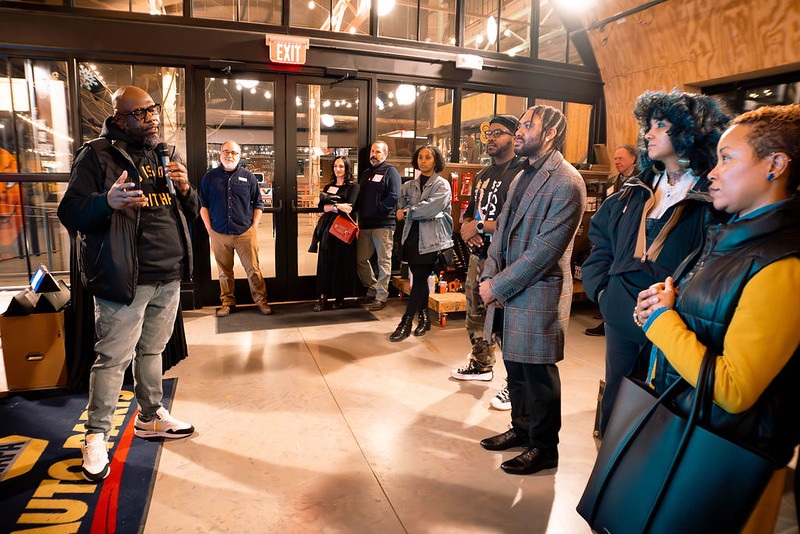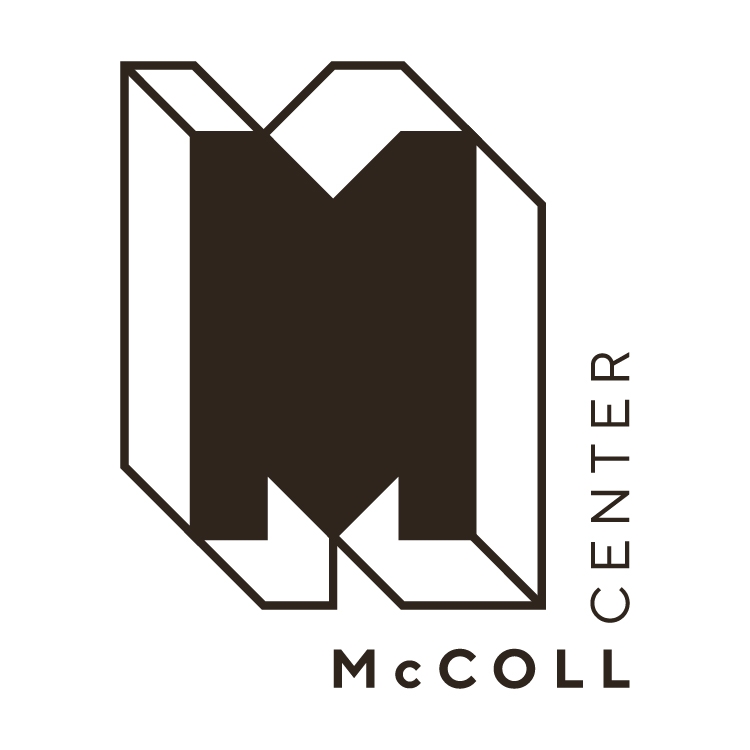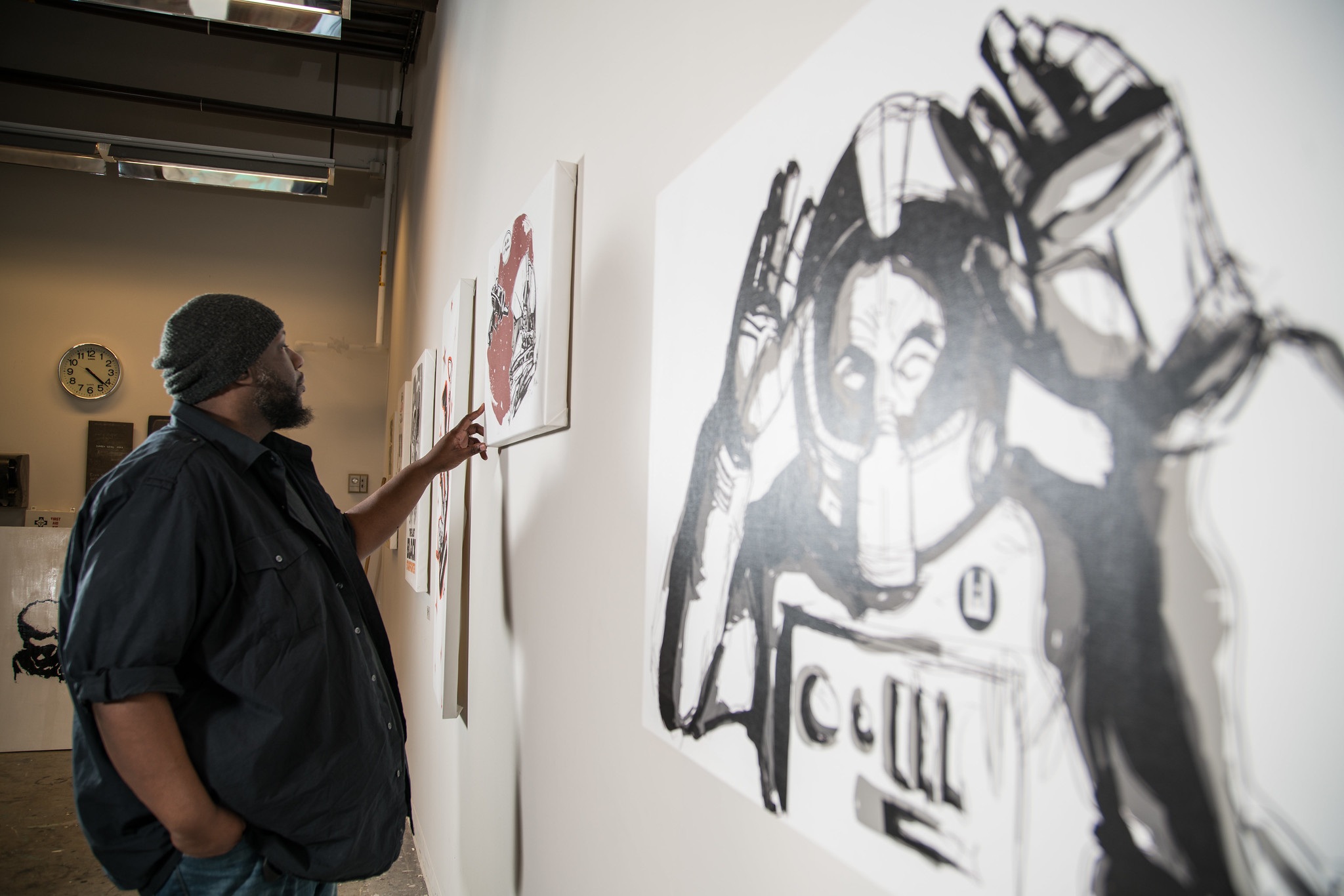
Artist and designer Marcus Kiser challenges us to rise in the face of adversity. His art serves as documentation of injustices, as well as encouragement to speak up, to assist, and inspire through art.
A Charlotte native and active member of the community, Kiser has worked with schools across the city to empower students through artistic outlets. During their 2017 residency at McColl Center, he and Jason Woodberry facilitated workshops at Garinger High School, using art and design expertise to teach students how to develop their own branding and logos.
After his 2015 exhibition, Intergalactic Soul, with Woodberry at Harvey B. Gantt Center for African-American Arts + Culture, he was encouraged by Charlotte art collector B.E. Noel for a residency at McColl Center. “I didn’t know what to expect,” Kiser says when describing his initial thoughts on the residency, “but it’s been very instrumental in the work I’m doing now.”
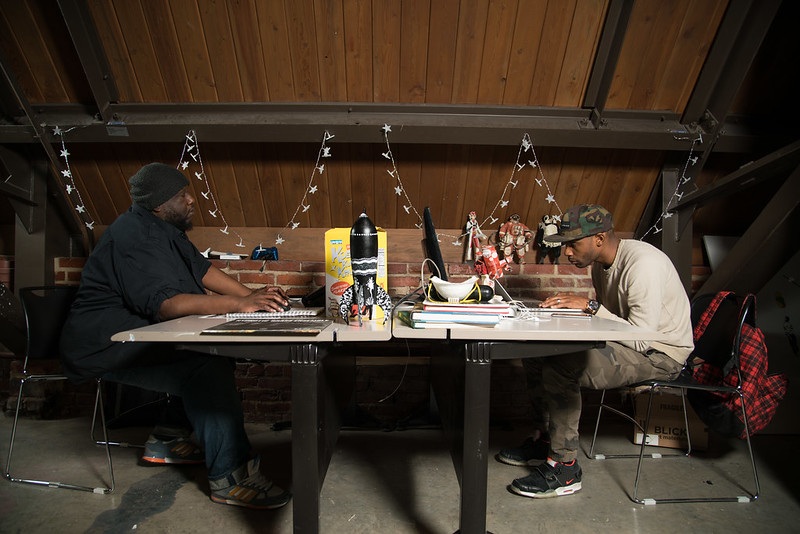
Kiser and Woodberry brought a new rendition of Intergalactic Soul to McColl Center. Created in 2014, Intergalactic Soul was a direct response to the killing of Mike Brown by a police officer in Ferguson, Missouri. “We saw a lot of arguments on the internet about people dehumanizing this Black boy,” Kiser says when describing his and Woodberry’s motivation to speak up about the event. Kiser asked himself, “How do I use my talents to serve, help, and assist people in need?”
Intergalactic Soul was an interactive art space in which the visitor walked through the narrative with the protagonists, two Black adolescents traveling through space. The exhibition contained every element for an immersive, multi-sensory experience to send the visitor straight into a comic book. They designed branding, created 3D printed sculptures, and had a live musical performance with the narration of the story.
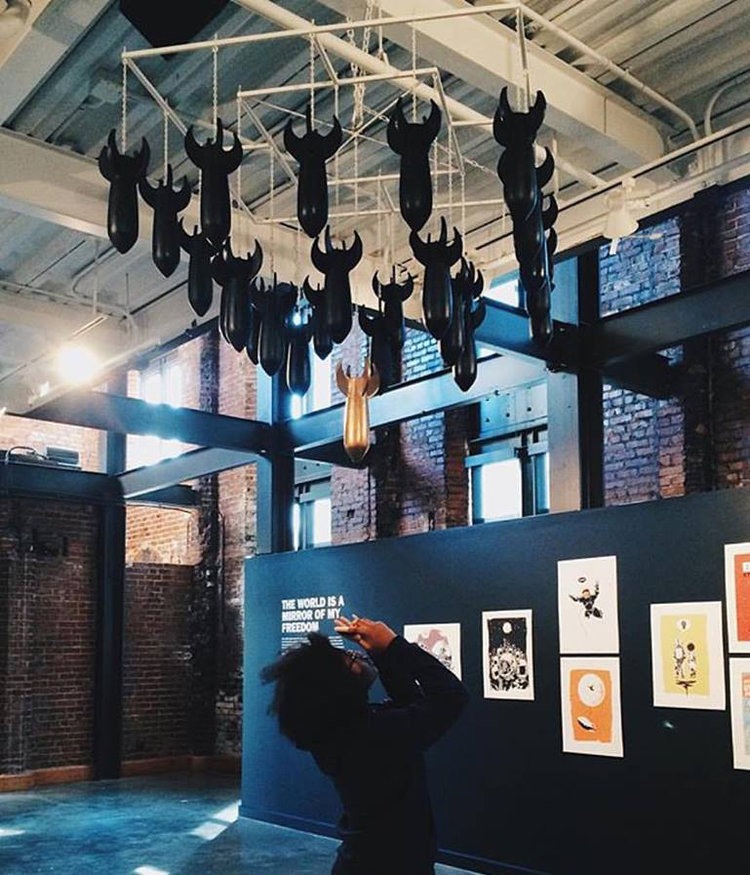
Kiser has always been fascinated by space, science fiction, and the future. “To understand the future, you have to understand the past. To me, that’s what Afrofuturism [is], the connection to the future while living in the present, but still understanding what happened in the past. If you don’t understand the past, you’re not going to be able to understand the future.”
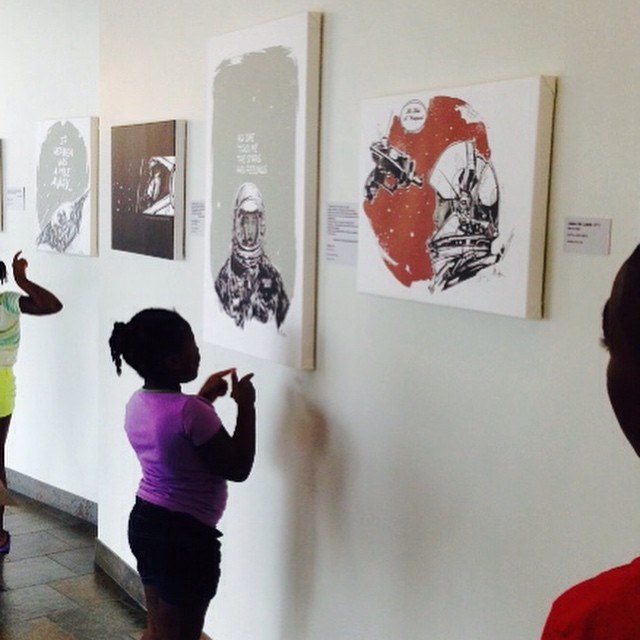
Even though Intergalactic Soul was presented almost as a children’s book, heavy topics were discussed. “People are afraid to speak up, they want to play the safe route. We need the disruptors, and I always felt that McColl was a disruptive space.” Kiser praises McColl Center for amplifying the voices of marginalized communities, for allowing artists to speak up, and for encouraging him to use his voice as well. Kiser emphasizes the importance of this now more than ever. “McColl [Center] was a safe space for my work.”

Inspired by artists and curators from across the world he met at McColl Center, Kiser travels as much as he can, researching the art of global communities. Recently, Kiser met former McColl Center artist and friend, Steven Hayes, in Senegal at the Black Rock residency. This past January, Kiser reconnected with McColl Center as a commissioned artist for the inaugural season of The Contemporaries, a new collectors community built to foster deeper connections between artists and art lovers through shared experiences, studio visits, and limited-edition works. He remains deeply rooted in Charlotte, where he lives, works, and continues to shape the city’s creative landscape.
> Explore more of Marcus’s work
